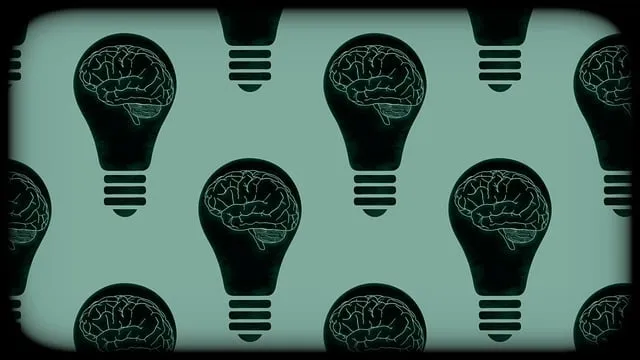Kaiser Permanente's Wheat Ridge mental health center excels in group facilitation for mental wellness through tailored programs and evidence-based practices. Skilled facilitators create safe, inclusive environments, integrating communication strategies, mindfulness, and conflict resolution into sessions. Mental Health Education Programs empower participants with practical skills, while journaling exercises and burnout prevention techniques foster personal growth and resilience. The center's holistic approach emphasizes confidentiality, cultural sensitivity, and positive reinforcement to build strong support networks and enhance overall emotional well-being.
“Uncovering powerful group facilitation techniques at Kaiser Permanente Wheat Ridge Mental Health Center, we explore strategies for enhancing mental wellness. From setting a supportive environment to facilitating engaging discussions, this article delves into effective practices tailored to the unique needs of the center. Learn how icebreakers, structured ground rules, diverse activities, and post-session resources create a holistic approach to group therapy success, fostering community and continuous wellness among participants.”
- Setting the Stage for Success at Kaiser Permanente Wheat Ridge
- – Understanding the Role of Group Facilitation
- – Tailoring Techniques to the Mental Health Center Environment
- Creating a Safe and Supportive Space
Setting the Stage for Success at Kaiser Permanente Wheat Ridge

At Kaiser Permanente Wheat Ridge, setting the stage for successful mental wellness group facilitation involves a strategic approach tailored to the unique needs and environment of this leading mental health center. The facility’s commitment to holistic patient care underscores the importance of creating an engaging and supportive atmosphere that encourages open dialogue and personal growth.
This is achieved through meticulously designed Mental Health Education Programs that empower participants with valuable skills, such as effective communication strategies, stress management techniques like mindfulness meditation, and conflict resolution approaches. By integrating these elements seamlessly into group sessions, facilitators foster a safe and inclusive environment where individuals can explore their mental health journeys together, ultimately enhancing the effectiveness of care at Kaiser Permanente Wheat Ridge.
– Understanding the Role of Group Facilitation

In the supportive environment of a Kaiser Permanente mental health center Wheat Ridge, group facilitation plays a pivotal role in fostering emotional well-being promotion techniques among individuals seeking support for their mental wellness journey. A skilled facilitator guides participants through engaging activities and discussions, creating a safe space where they can share experiences, offer peer guidance, and learn valuable coping mechanisms. This collaborative approach enhances the overall therapeutic experience, encouraging open communication and building a strong support network within the group.
By incorporating Mental Wellness Journaling Exercise Guidance and burnout prevention strategies for healthcare providers, facilitators at these centers empower individuals to navigate their mental health challenges effectively. These techniques not only help in self-reflection but also equip participants with tools to manage stress, process emotions, and promote overall emotional well-being. Through interactive sessions, members gain insights into their thoughts and behaviors, fostering personal growth and resilience as they work together towards a healthier mindset.
– Tailoring Techniques to the Mental Health Center Environment

In facilitating mental wellness groups at a Kaiser Permanente mental health center in Wheat Ridge, tailoring techniques is key to success. Group leaders must consider the unique environment and needs of this specific setting, where individuals often face complex challenges related to their mental health. This might involve incorporating strategies such as structured discussions centered around coping mechanisms, mindfulness exercises tailored for stress reduction, and peer-to-peer support networks. By aligning group activities with the evidence-based practices taught in Mental Health Education Programs Design, facilitators can create a safe space for participants to learn mood management skills and build resilience.
Additionally, leveraging Stress Reduction Methods within these groups ensures that members have access to tools for immediate relief. Techniques like deep breathing exercises, progressive muscle relaxation, and guided imagery can help individuals navigate moments of heightened anxiety or stress. This real-time application of Mood Management strategies not only enhances the group’s overall effectiveness but also reinforces the importance of self-care in a supportive environment, mirroring Kaiser Permanente’s commitment to holistic mental health care.
Creating a Safe and Supportive Space

At the Kaiser Permanente mental health center Wheat Ridge, creating a safe and supportive space is paramount to effective group facilitation. This involves cultivating an environment where every participant feels seen, heard, and respected. Facilitators should encourage active participation while ensuring confidentiality, fostering open dialogue, and promoting non-judgmental attitudes. By establishing clear boundaries and rules, facilitators can help members feel secure to explore sensitive topics and share personal experiences.
Cultural sensitivity in mental healthcare practice plays a crucial role in building this sanctuary. Recognizing and respecting diverse backgrounds, beliefs, and perspectives allows for more inclusive discussions. Incorporating cultural elements into activities and encouraging diverse expressions of emotional regulation can significantly enhance the group’s cohesiveness. Moreover, boosting participants’ confidence through positive reinforcement and acknowledging their unique contributions reinforces a sense of safety and belonging.
Group facilitation plays a pivotal role in enhancing mental wellness at Kaiser Permanente mental health centers, such as Wheat Ridge. By understanding the unique dynamics of group interactions and tailoring techniques accordingly, facilitators can create a safe and supportive space. This environment fosters open communication, encourages peer support, and promotes positive outcomes for individuals seeking mental health services within these centers. Effective facilitation ensures that every member feels valued and empowered, ultimately revolutionizing the way we approach collective healing.






